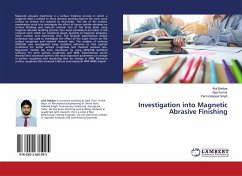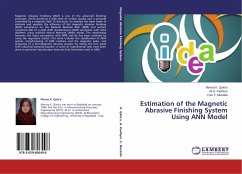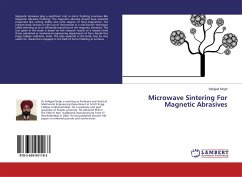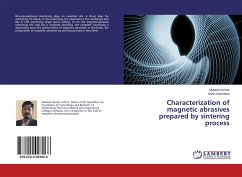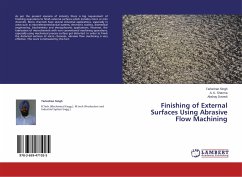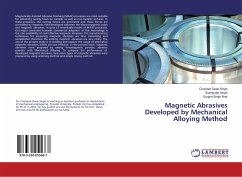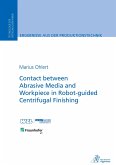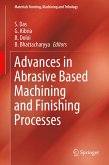Magnetic abrasive machining is a surface finishing process in which a magnetic field is utilized to force abrasive particles against the work piece surface to remove the material as microchips. The aim of the present examination work is to investigate the effect of boron carbide abrasives on surface finishing and material removal rate of flat brass plate using magnetic abrasive finishing process. Four input parameters are taken in this research work which are rotational speed, quantity of magnetic abrasives, mesh number and machining time. Full factorial experimental design technique was used to investigate the effect of the input factors on the surface roughness and material removal rate. The analysis of variance (ANOVA) was investigated using statistical software to find optimal conditions for better surface roughness and material removal rate. Regression models has been developed by using MINITAB statistical software for both surface roughness and MRR. Experimental results showed that rotational speed is the most important parameters on change in surface roughness and machining time for change in MRR. Minimum surface roughness (Ra) achieved 0.061µm and maximum MRR (MRR) 3mg/m.

